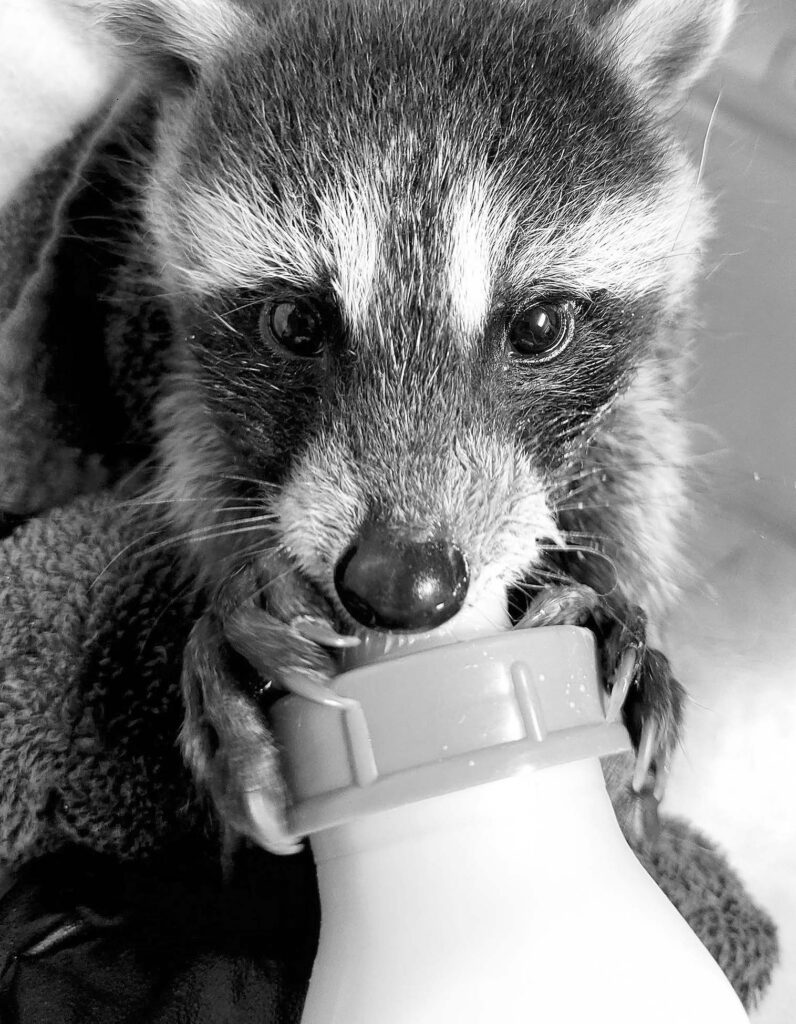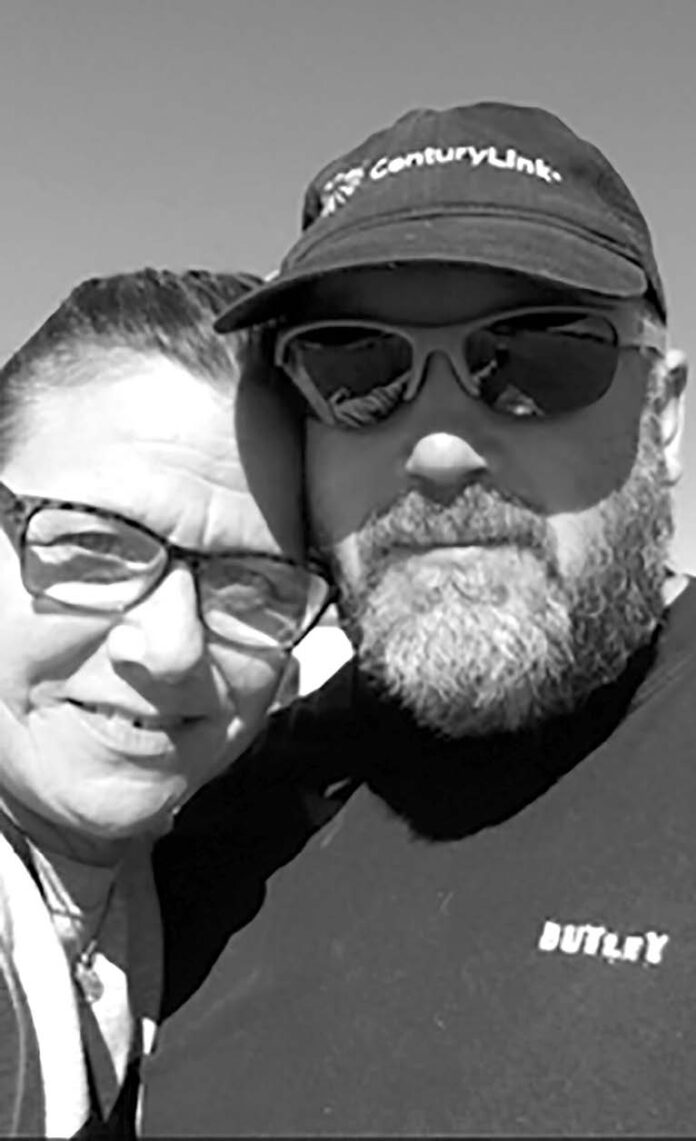by Vicki Biggs-Anderson
On the cool summer evening of June 26, Angie Jackson, of Grand Marais, found herself driving for four hours on an errand of mercy. As an insurance agent, Jackson is often called on to help people in distress. That night, though, the well-being of a starving family of raccoons was her concern. She was bent on saving them, even though they’d done major damage to her home.
Angie and partner Brad Thompson live on the eastern edge of town, where he owns and operates Thompson Performance, specializing in auto repair and upgrades. Along with their home, there is a thriving flock of chickens and ducks on site. And ever so often, there are flying or four-footed uninvited guests attracted by the chicken feed.
“At first, we thought it was a flying squirrel or maybe red squirrels in the attic above our bedroom,” Brad Thompson said. But the racket plus the depletion of his duck feed pointed to critters he had dealt with before – raccoons. He and Angie had live-trapped raccoons in the past, relocating them far enough away so they wouldn’t find their way back. But this time was different. A mother raccoon had ripped a hole in the roof and settled in as she tried to feed five tiny babies. And she and her offspring spent all the hours they weren’t feeding or sleeping, tearing the couple’s attic apart, right above their bedroom.
At last, desperate for a peaceful night’s sleep, Brad took action. Unfortunately, that meant making a hole in one wall to access the attic. From there, he could see the raccoons, but had to crawl on narrow planks to get to them. Armed with heavy leather gloves and a small plastic garden rake, he managed to get all five babies in a cooler.
“I had to use the tool to get the last one,” he said. “It was all curled up in a corner and fastened on my glove finger when I touched it. Literally hung there until I shook it off over the cooler.”
The mother raccoon, easily trapped in a Have A Heart trap, was placid but also quite skinny and frail. Between her condition and the size of her young, Brad and Angie believed that releasing them in the wild would be a death sentence.

“We started to look for a place that would take them,” Angie said, “and found the Wild and Free Wildlife place in Garrison.” Wild & Free Wildlife Program is permitted by the U.S. Fish and Wildlife Service to rescue and rehabilitate injured or orphaned wildlife, including owls, eagles, hawks, and large animals such as deer and even bears.
Given the condition of the mother, a volunteer at the center agreed to stay after hours that night to take the little family in.
“They had heated blankets to keep them warm when I got there,” Angie said. “And they put them in with another bunch of babies and started bottle feeding them right away.”
The center kept Brad and Angie posted about the raccoon family. Fattened up and vetted for parasites, they were successfully released late this summer on the sprawling wildlife preserve attached to the center.
Some people told the couple that they would’ve shot the creatures instead of going to so much trouble. Especially after the damage they’ve done. But Angie Jackson and Brad Thompson aren’t some people. They are most likely those rare folk famed anthropologist Charles Darwin had in mind when he wrote, “The love for all living creatures is the most noble attribute of man.”
Even so, Angie wanted it made clear for the purpose of this story that she and Brad are not willing to take in orphaned or injured critters. “It’s a lot of work and we both have full-time jobs,” she said. At one point, the two raised some orphaned seagulls and started getting requests to rehab others. “I became known as the gull whisperer,” she laughed.
For questions about whether an animal needs rescue, contact the center at 320-692-5417. wildandfree.org
Keeping a wild animal is illegal. If you have questions about taking animals, you should contact the DNR at 651-296-6157 or 888-646- 6367, Conservation Officer, Trent Anderson.
INJURED OR ORPHANED WILDLIFE DON’Ts:
Don’t feed it. You could give it the wrong food or a dangerous substance. Don’t give it water. This can be fatal for a young raccoon. Don’t handle it excessively. This stresses the animal and can put you at risk of disease.



